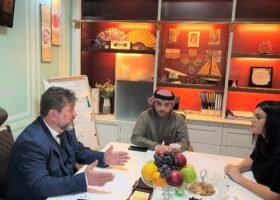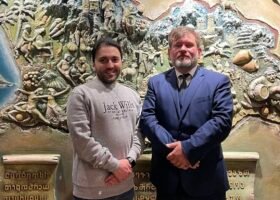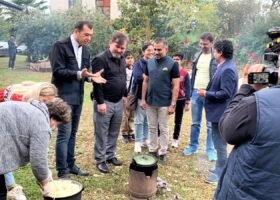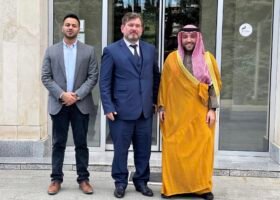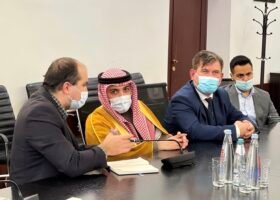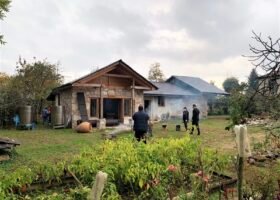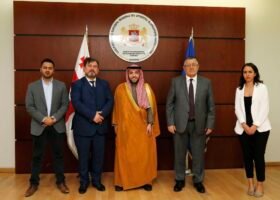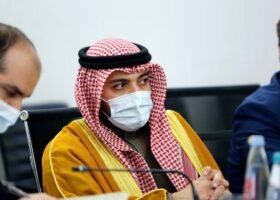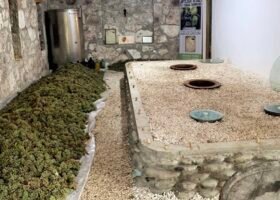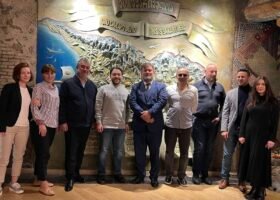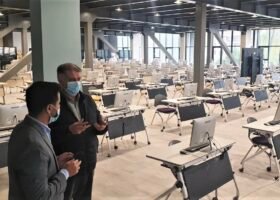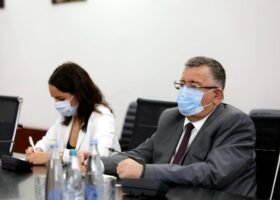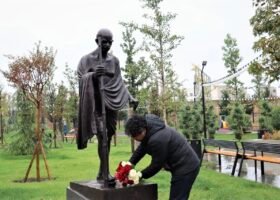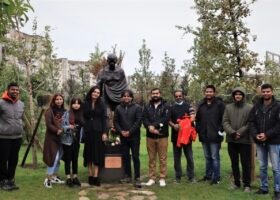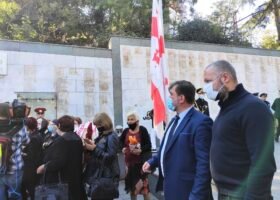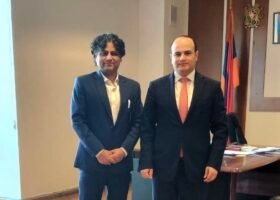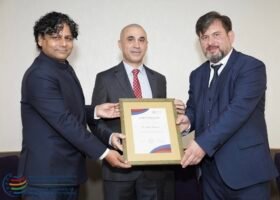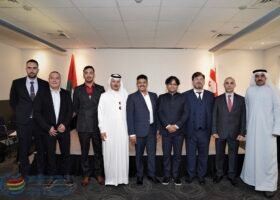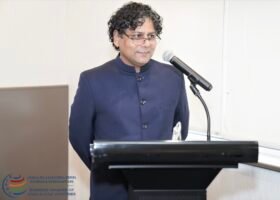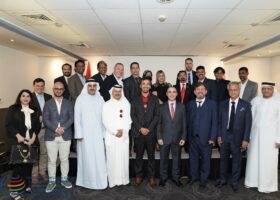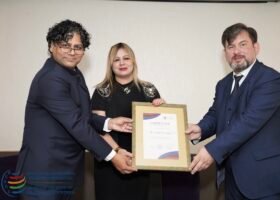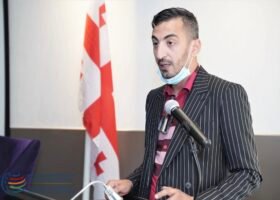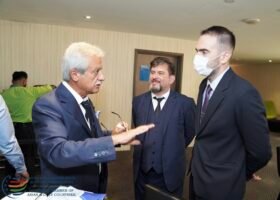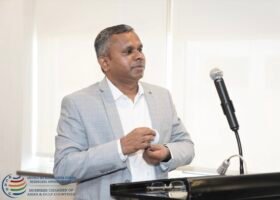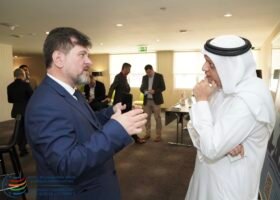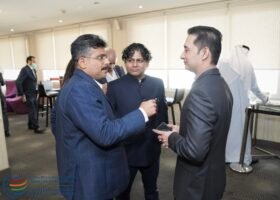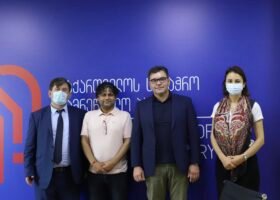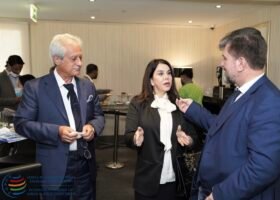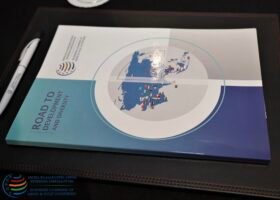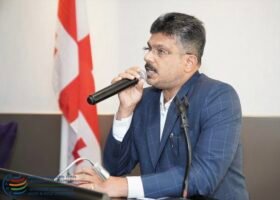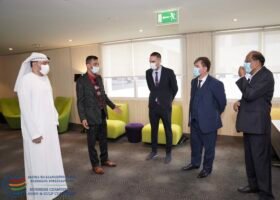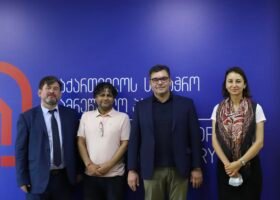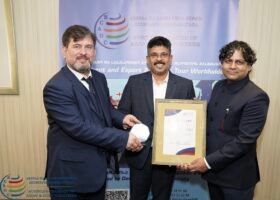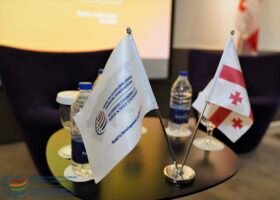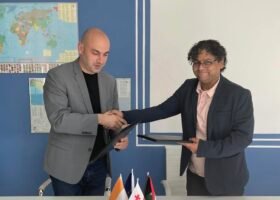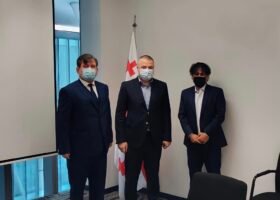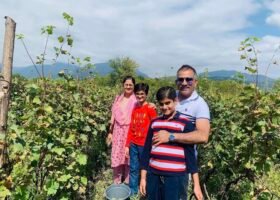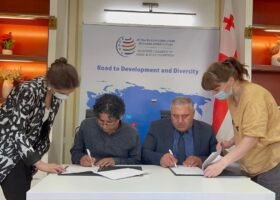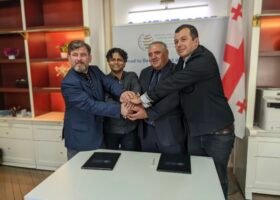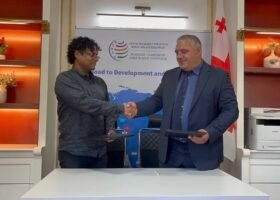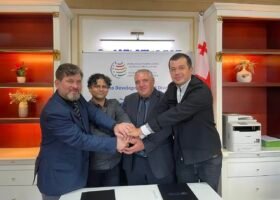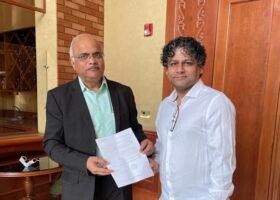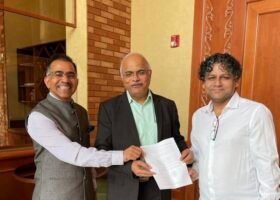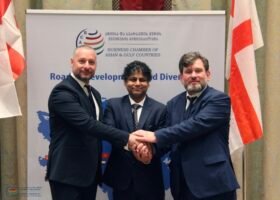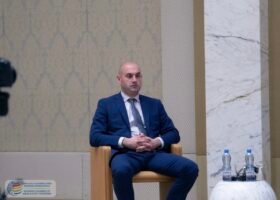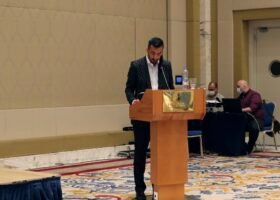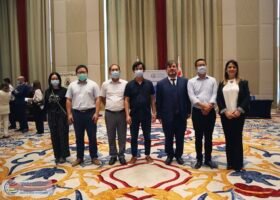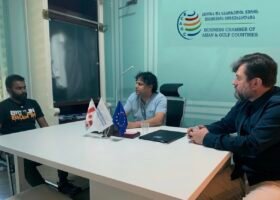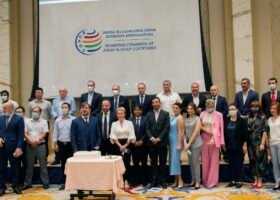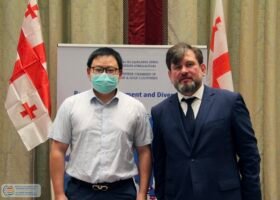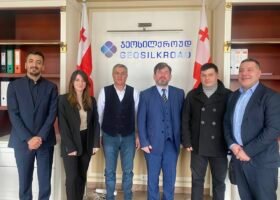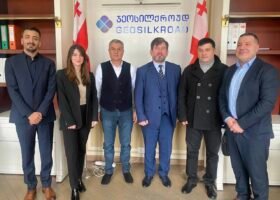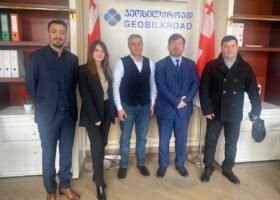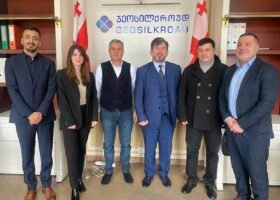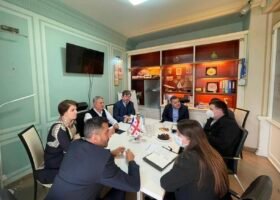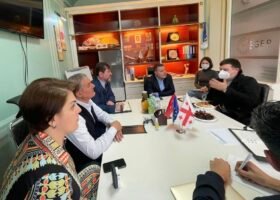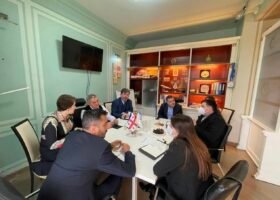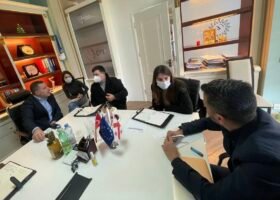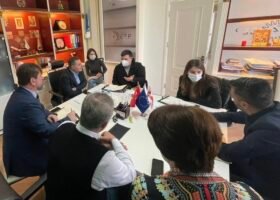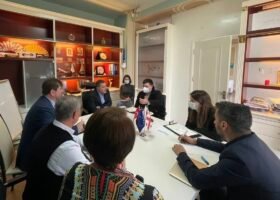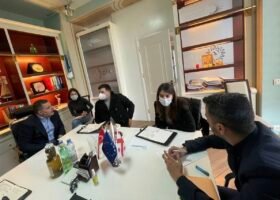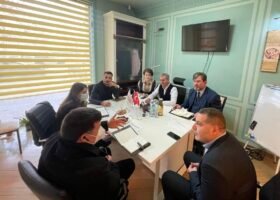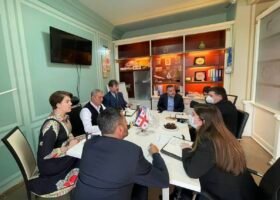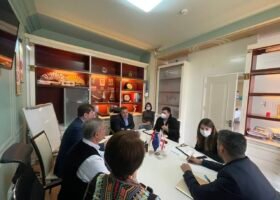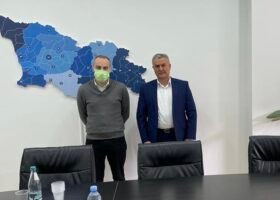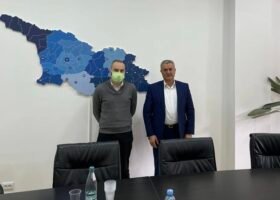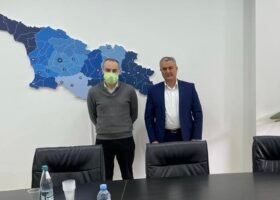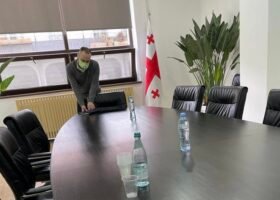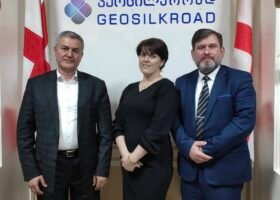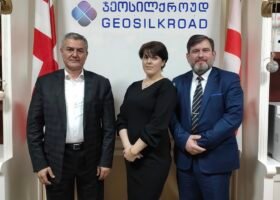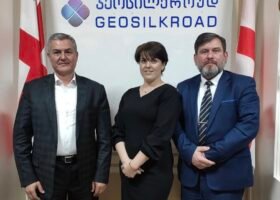A New Dimension for Economic Diversification
A New Dimension for Economic Diversification
- April 13, 2022
- Posted by: Kati2022

An economy that is diversified is also developed. The more diverse the economic components, the more sustainable the system becomes. The market economy is periodically prone to crises, which are caused by various reasons. Covid-19 left the global economy in a state of shock. The difficult process was aggravated by Russia’s aggression against Ukraine, which turned the Central European region into a militaristic training ground and created a political-economic situation in the world that is radically different from the past. The response against the aggressor state in the form of sanctions, which had no alternatives, has made the situation even more critical. It is clear today that different economic markets are needed in the future so that the existing crisis does not deepen, and the regeneration of the global economy can begin.
In the previous blog, I reviewed the alternative economic spaces that are vital for countries to pursue a diversified economic policy.
The countries of Asia and the Persian Gulf lead the world in terms of development dynamics, thus making them particularly interesting in the global economy. “One Belt One Road” is the shortened name for the “Economic Belt of the Silk Road” and the “21st Century Maritime Silk Road” introduced by Chinese President Xi Jinping in 2013.
“One Belt, One Road” means its joint construction through consultations and protection of the interests of all parties. It is based on the following principles: non-interference in the domestic affairs of states, open cooperation, harmony and involvement, orientation on the market, common interests and benefits. The scope of this project extends beyond the Asian continent, including the countries of the Persian Gulf and the rest of the world. The high economic potential of the “Asian Tigers” and China is unprecedented in the world, and the economic potential of the Asian region and the Persian Gulf countries is characterized by a growing dynamic.
„One Belt One Road“ has great importance for Georgia and its neighboring countries. With this decision, China will take the first steps towards a policy of economic diversification in the region, and as a result, if the above project is successfully implemented, Chinese-Georgian relations will be deepened. In addition, Georgia’s neighboring countries will have a chance to join the global economic chain, which is directly related to the developed Asian market -Turkiye, Azerbaijan, Armenia and, of course, Georgia will be able to successfully pursue economic diversification policies due to the diversity of the Asian market.
It is important, that Georgia is actively interested in Asia’s economic opportunities, which is shown by the 2018 China-Georgia Free Trade Agreement. This is especially important because Georgia is the only country in the region that has reached such an agreement with China. According to today’s data, the product imported from China to Georgia includes machines and mechanisms for excavation drilling ($42.4 million), flat-rolled carbon steel ($28.6 million), and vaccines, blood and immunization products ($24.7 million). The main components of products exported from Georgia to China are copper ores and concentrates ($ 395.7 million), precious metal ores ($ 31.3 million), and medical devices ($ 15.2 million).
The Eastern Hemisphere is one of the best alternatives for economic diversification for the whole world, The process is ongoing and there is no doubt that the rest of the world will continue the process of active economic integration with China, the Persian Gulf countries and the Asian tigers in order to successfully implement a diversification policy. In terms of economic diversification, along with Asian countries, it is necessary to review the economic potential of Africa.
One of the alternatives to the classic European-American and Asian markets is Latin America. Mexico and Colombia are progressing economically after political instability and cartel wars. Despite the fact that the political systems of Latin America are characterized by instability, unlike those of the West and Asia, developed countries with an economic diversification policy are observing the region with high interest because of the growing middle class and young working-class population of Latin American countries.
In terms of economic development, Brazil is the most advanced country in Latin America through its mining, agricultural production, and a strong and fast-growing service sector. Brazil is a leading producer of minerals including iron ore, tin, bauxite (aluminum ore), manganese, gold, quartz, diamonds and other precious stones. In addition, steel, automobiles, electronics and consumer goods are exported. Foreign capital is important, among which the US, China, Germany, Japan, Switzerland and the United Kingdom have a special place. Their positions are significant in the chemical, pharmaceutical and electrical industries, machine building (especially in the automotive industry), and shipbuilding.
It is important that the relations between Georgia and Brazil have deepened since 2010 with the appointment of the country’s ambassador in Tbilisi. The two countries also actively cooperate in a number of international economic forums and other diplomatic activities.
It is important to note the multifaceted relations between Turkiye, one of the leaders in the region, and Latin America. We can take 2015 as a watershed date, which is when official Ankara opened the Turkish International Cooperation and Development Agency (TIKA) in the Mexican capital. The aim was to diversify the Turkish economy by cooperating with Latin America. Since 2015, cooperation between Turkie and Latin America includes up to 150 political-economic projects and millions of Dollars in various activities carried out within the framework of education, ecology, humanitarian aid and Ankara’s economic diversification policy. Cooperation between the two sides in agro-cultural and transport infrastructure projects is particularly noteworthy. If by 2006 the trade turnover of Turkie and Latin America was equal to 3.6 billion dollars, in 2016 the record investment of economic relations between the two countries was exchanged for a record 9.2 billion US dollars. Economic relations reach $7 billion by 2021, which can be considered a stable figure in the economic cooperation between the two countries.
Coal, natural gas and oil account for about 70% of Africa’s total electricity generation. Considering that traditional energy resources are losing relevance due to the depletion factor, a number of states pursue active policies of “energy transition” in order to acquire alternative energy or gain energy independence. One of the parties in this process is the African continent, which will increase the economy of the entire continent by 6-7% by 2050 through alternative energy sources. This fact gives great impetus to the states in the context of energy diversifiers.
African Development Bank Groups: The AfDB, the African Development Fund (ADF) and the Nigeria Development Fund (NTF) contribute to the economic development of its 54 regional member states and are motivated to attract new investment from the rest of the world. At the same time, it should be noted that Russian energy resources have become particularly problematic since Russia’s invasion of Ukraine, which has once again reminded the world of the need to diversify energy sources. The African continent is one of the most advanced in terms of alternative energy production potential.
For decades, relations between Georgia and African countries have been developing with different dynamics. Ambassadors of 8 African countries have been working in Georgia for 3 decades. However, it should be noted that the relations between Georgia and Africa have deepened especially since 2012, which was reflected in the sending of the Ambassador of Georgia to South Africa. As stated on the official website of the Ministry of Foreign Affairs of Georgia, the relations include economy, agriculture, science, education, culture, sports, tourism, monument protection and other fields. Furthermore, the functions of the Department of Trade Development and International Economic Relations of Georgia are directly related to the active economic work in the African region, which proves that Georgia is actively considering cooperation with the countries of the African continent in the format of economic diversification.
It is important to emphasize the economic relations between Azerbaijan and Africa. The volume of trade relations between the two sides in 2017 amounted to 7.16 million US dollars. January 2018 is noteworthy, as this is when a meeting was held in the South African city of Pretoria regarding the Baku-Tbilisi-Kars railway project, which aims to deepen economic ties and smoothly pursue economic diversification policies. Georgia, Azerbaijan and Turkie have prioritized their interests in the African region. In the future, within the framework of market diversification, the relationship with this region will be further deepened.
In summary, it must be said that the global economy will be different in the coming years in the wake of the Covid pandemic and Russian aggression. Developed and developing countries will be able to adapt to change because of pursuing an active diversification policy.
Author: David Tsirdava




